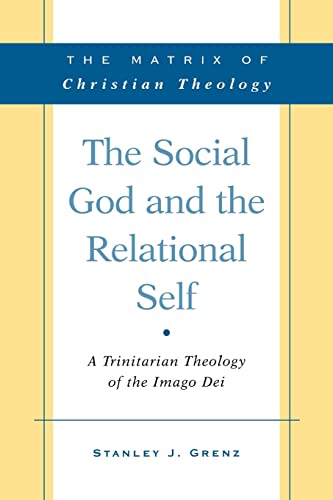Volume 28 - Issue 3
Dialogue of Devils: Five Letters Found in an Eighteenth Century Folio Volume
By E.A. BellermaineThese letters came into our hands after the recent death of Miss Bellermaine. She seems not to have noticed the chronological problems they contain: if her dating of the letters to the early years of the twentieth century is correct—and she is a world authority in this area—then the letters refer to numerous movements that were decades in the future when they were written. I can find no satisfactory explanation for this. [Readers may be interested that her work on the epistolary novel was completed shortly before her death and should appear from the Oxbridge University Press some time next year. Ed.]
Whilst on sabbatical in Oxford working on my monograph on the literary context of the epistolary novel (forthcoming), I came across the following letters in an old copy of the ‘Infernal Conference: or Dialogue of Devils’ by the Revd John McGowan (G. Keith, London, 1772). They show striking similarities to the so-called ‘Screwtape Letters’, which were edited by C.S. Lewis and, until now, widely considered to be fictional. The paper dates from immediately after the Great War and the handwriting also fits in the same period. The book, which is kept on closed shelves for old and valuable volumes, has only been withdrawn once in the last fifty years according to the college librarian who has been there since 1940. The letters comprise one half of a correspondence between Mouldred and his nephew Slitherous.
Edith A. Bellermaine, York, All Saints Eve, 1991.
My Dear Slithrous,
I cannot quite believe that the Lowerarchy has allowed you another theological student as a patient. After your last disaster I am surprised that you were not transferred to working in the Marmite factory. I am sure that they know what they are doing, but you failed so completely that apart from an impatience with the Parish Church Council and the occasional unnecessary, confidence-sapping (and generally incorrect) reference to ‘what the Greek really means’, your ex-patient is discharging a ministry that is damaging our interests most seriously. I am sure that after your previous effort you were given a thorough debriefing (and disembowelling), nevertheless your mother has asked me to write to you, and you know how persuasive she can be.
Full time theological education can be a most productive time for us, if it is used well. Beware though, it can be hugely damaging if not dealt with properly, as you discovered to your cost. If your current patient is not aware that studying academic theology in a British university can undermine his faith, then do your best to keep him ignorant. Some of our best servants are very pious in appearance, charming, friendly and hugely knowledgeable, but have abandoned all real belief in the Enemy. You should suggest to your patient that it is these people that he wants to become like. This is easier if the Enemy’s servants have boring voices, brown clothes, and tedious, rambling lectures, but you should be able to manage without these things.
The first and most important thing that you must do is to undermine his confidence in the Bible, and make him see his old beliefs as ‘naive’, ‘simplistic’, ‘rigid’ and ‘fundamentalist’. (The Philology Department has made solid gains with these words, especially the last—for which I personally was responsible. As we are always saying, do not let the humans think about what the words mean: use them only for effect.) This undermining is most effectively done slowly and subtly. Have those lecturers who are fully ours (a disappointingly small number) ridicule his beliefs. Do not let them try to argue for their position, and do not let the patient realise that it is only in the last few hundred years that people have tried to argue that the Bible’s words are not the Enemy’s words. (If he does realise this, all is not lost. We have managed some academics very well and they now argue that the evangelical view of the Bible is a modern invention. However, do not let him read the footnotes, as the case falls apart in the sources.)
This reminds me of the second point—always encourage him to read modern accounts of the classic texts. You can do this in several ways. Either tell him he doesn’t have time to read Augustine, Aquinas, Calvin or even the Bible, or tell him he wouldn’t understand them if he did (this false humility is such a great asset). If he does read the original sources then he might start to notice that modern writers have particular fashions and agendas that dictate what they write, or even (and you must avoid this) that, although he is a minority in the department, he actually believes what the Enemy’s servants have always believed. For this reason you should convince him that the most recent book is the best book. It works—they really are that stupid!
But do not let him read anything that supports his beliefs that is written by intelligent servants of the Enemy. Either keep him ignorant that these books exist, (tell him he has too much reading to do anyway), or make him embarrassed to read authors that his tutor hasn’t put on the reading list and wouldn’t agree with. Do something, but do not on any account let him discover the hundreds and hundreds of years of thought that have been produced by the Enemy’s vile servants. If he does, then he will realise that we have no new tricks and many of the problems he comes across will have been discussed by someone at some stage. This is a disaster for us and, as I remember, how you failed with your last patient. Do not fail again. Try anything: let him be snooty about the old fashioned English or the long-winded way that many of the Enemy’s servants used to write. Make him dislike the smell of old paper. Just do not let him read anything more than thirty years old. (Apart from anything else, if he realises how arbitrary and absurd the scholarly consensus was a hundred years ago, then he may begin to suspect the present scholarly consensus. This might even lead to critical discernment, which must be avoided.)
If he does start to read old books then there is only one cure that I know of. You must make him live in the past and try to fight the battles of the 4th or 16th or 19th centuries all over again. Now be very careful, most of the issues are the same, but the best way of dealing with them has changed a bit as he is living in a different culture. If, however he realises this, all is lost, but if you can keep him in the dark he will waste his time fighting errors into which no-one is in danger of falling. You should try to get him to copy the aggressive tone of people like Luther and Calvin, but without any of their perception or understanding.
Do write and let me know more about him. I am especially interested as to whether he has been warned by his church about studying theology in a university.
Your Affectionate Uncle,
Mouldred
Well Slithrous,
I can’t say that I envy you. I also begin to see why you were assigned this boy—it is so that when your punishment comes it will be far worse. So, he comes from a church where they have told him about studying theology and are not suspicious of him for doing so. His vicar actually took him out for tea and said that the next three years were a huge opportunity to grow in his understanding of the Enemy that he should not waste. The wretched creature even said that he would not be able to answer all the issues that came up at once and that he should keep a notebook of questions and not worry too much if he did not have all the answers at once.
There are nonetheless a few things that you can do. Firstly, you should try to muddle his mind with whatever fashionable theology is going about. Your mother says that he is one of the most dangerous types of evangelical. For this sort the best thing is to get them interested in some movement that claims to show that what the Bible really says is not what the church has always understood it to say. This is perilously close to the truth—the church does get it wrong, as the Reformers so unhelpfully pointed out. Fortunately though, many of their modern followers all too easily forget that the Enemy is not likely to have allowed all his servants to have mistaken views about him throughout all time. What you must do is take the truth that people do make mistakes, and use that to undermine your patient. When it comes to choosing a fashionable theology there are several that you could choose from. At the moment some of the most popular here below are Openness Theism (an astonishingly daring move, which only works because they no longer read their Bibles), or the ‘new perspective’ on Paul, which is even cleverer. It is one of the more recent (and successful) uses of the ‘ancient context gambit’. (What I love about the ancient context gambit is that it is true in some ways—the Enemy likes his servants to take seriously the fact that the Bible was not written in sixteenth century Geneva or early twentieth century America—but we can use it for our purposes. You get them to pontificate about the ‘original context’ and then you suggest that they place it somewhere slightly obscure but just about credible—whether that is the Sumerian epic, Hellenistic mystery religion, or the literary world of first century Rome. You must be careful not to let these contexts shed any light on the text [as some of them can do], but these occasional small losses are more than made up for in the general loss of confidence in reading the text on its own which generally follows as a result.)
This sort of ‘what the Bible really says’ heterodoxy is generally championed by men who used to be evangelical but are no longer (though do not underestimate them, many of them are still in the Enemy’s camp, and have the potential to undo a lot of our work). Once your patient has bought into some form of fashionable theology it becomes much easier to pull him further and further away from the Enemy, by persuading him that the NT does not really teach any of the central beliefs of the church after all. A good place to start is the cross. You can then move onto things such as the understanding they have of who the Enemy is (‘the word Trinity never occurs in the Bible and the idea is clearly the result of later Greek philosophical speculation’). This rarely fails and we have created some wonderfully effective false teachers this way.
Secondly, you should stop him reading the Bible and praying on his own. This is all the more enjoyable when combined with fashionable theology. The easiest way is to make him think that since he is studying the Bible all day—and what the Bible really says—he doesn’t need to read it in on his own. (We have done very well in many places, as the biblical studies courses focus mainly on the secondary literature. This is a joy for us as we can persuade them that they need not keep reading the Bible ‘since they are studying it all day anyway’, when in fact they are not! It is delicious! Many of the fools think that the reading they do for their degree is all they need!). Later on, you can eventually stop him going to church and fellowship meetings altogether with the same argument, though don’t try to do it all at once or he will notice. But do not let him read the Bible. It has the potential to undermine all the other tricks we have at our disposal.
I hope, for your sake, that you do better than last time.
Your Uncle,
Mouldred
You are a fool, Slithrous,
I would like to say that you were adopted, but your mother always was a stupid woman. Your ‘good news’ is nothing of the sort and unless you sharpen up soon you will suffer horribly. That your patient has not yet decided on which church to go to after a term appears to be what we want—encouraging church tasting is the basic text-book move whenever one of the Enemy’s servants moves house—but look at what your patient is doing. He spent a month at a nauseous Baptist chapel and then the second month at an equally sick-inducing Anglican church. That is no good, and I have no doubt that in your next letter you will tell me that he has settled into one of them. What you want to encourage is the church-a-week mentality. I once heard one of their females say that she had been to a different church each week of her time in Oxford. She even had a web site which gave them marks out of ten for different aspects of the service! She had become quite a connoisseur, and is safely on track to Our Father Below. If your patient is not quite that stupid (and I admit, it is rare, but so much more delicious for it) you must have him choose a church for the worst reasons. For some reason, many of them like music (Oh the horror of listening to them sing. It turns my stomach to think of it), but you can use this well against them. Get them to think that ‘since they are studying the Bible all day’ (make them repeat this daily and especially when they begin to feel uneasy), they can go to a church with ‘good worship’ and very little else. This can either be modern, or ancient (we do as well out of the college chapels as we do from the modern-music-and-dancing-churches), it doesn’t matter either way as long as they focus on unimportant things and never come into contact with decent preaching.
Your other good news is more promising, though you must use it properly. Your patient has been out with his friends from the hockey team and got drunk. This is no big deal in itself—although the Enemy does not like this (and was even vulgar enough to tell them) he lets them off if they are sorry. So you have to move quickly. Instead of him thinking that he is no different from the other servants of the Enemy who make mistakes and can move on. (Why does the Enemy let them off? I just don’t understand it.) You must convince him that he should be living a perfect life since it is his job to study theology. If he won’t play the game of pretending to be perfect with its inevitable dishonesty and frustration, then you might persuade him into a more standard introspection and spiritual depression or tell him that, since he has messed up, he may as well get drunk again. If you opt for the ‘repeat prescription’ solution to sin then it is rather amusing to suggest that he uses his ‘deeper knowledge’ to excuse it. This is such fun to watch and we have been very good at it. You take the specific sin that they are going to commit (here drunkenness) and then you tell them that ‘the New Testament was a document written in different culture thousands of years ago and we should not take its moral standards as normative for our contemporary, post-modern, secular, market-state, as this would be to fall into a naive and literalistic abuse of the Holy Scriptures’. (You note all the tricks: use long words that he doesn’t understand and sweeping generalisations. Don’t let it occur to him that the problem of living in a different culture from that of the New Testament has ever been experienced before, and at all costs do not let him remember that the Enemy and the things that please him have not changed. Make sure that he calls the Bible the Holy Scriptures too—he can feel more comfortable about his blatant disobedience if it is covered with a veneer of piety.)
You say that is friends are very debauched. This is not unusual (nor has it ever been), and is not good enough on its own. Do you not remember the way that, during that embarrassing episode they call the ‘Incarnation’ the Enemy himself used to mix with prostitutes and tax collectors? (I understand that the modern equivalent is politicians and lawyers.) The only way that you can make this situation of any real use to us is by making him think that he has to behave in the same way as they do or they won’t accept him. This is not very advanced and I am sure that even you can manage it. Try to keep him away from those in the Enemy’s service who are able to live among others in such a way that, not only do they not compromise, but they attract others to the Enemy and even tell them about him. Living in the world is something that the Enemy wants them to do and he helps them. Either make him a guilty, self-loathing drunkard or have him retire into a safe cocoon to drink weak orange squash and hot chocolate (‘with Jaffa cakes and comfy seating’) where he never speaks to those who are not already serving the Enemy. Either way you will make him largely ineffective.
Your Uncle,
Mouldred
My Dear Slithrous,
At last some genuine good news. You say that your patient has decided not to get involved with any of his church’s small groups, and that he is avoiding the other servants of the Enemy in his college. This is wonderful, and—credit where credit’s due—your line that he needed time ‘to think about his course’ was brilliant. You see that it is completely true. If he is to have any real chance of doing us any harm from his degree he will need to think things through. (Though naturally the conclusion that he needed to avoid other servants of the Enemy to do this is a complete non sequitur!) What you must do now, it goes without saying, is to stop him from actually doing this. You have not told me whether or not he is a thinker. If he is not, then the task is fairly easy as you can get him involved in a dozen different causes and wear him out that way. Many of the Enemy’s servants rush around like clockwork mice, doing so much that they never have time or energy to stop and work out what the most useful things to do would be and how they might be achieved. They still harm our interests, but not nearly as much as they might if they committed themselves to one or two things and stuck with them. If he is a thinker then you must make him go so deep in thought that he never returns to the surface and is either incapable of explaining things in a simple and helpful way, or is secretly scornful of those who haven’t done the work for themselves. We have managed to immobilise a number of potentially dangerous scholars in this way.
The question in your most recent letter about whether or not we should be attacking his trust in the Enemy rather than wasting all this time on the Bible makes me wonder whether you have not started to believe your own lies. How else do you expect to undermine his trust in the Enemy if not through undermining his trust in the Enemy’s words? Do put these soft thoughts out of your head. You may tell him that worrying too much about the Bible is bibliolatry and you can make jibes about the Father, the Son, and the Holy Scripture, but do not, for Hell’s sake, start believing it yourself. I am very concerned that he is still reading the Bible. If you really cannot stop him, then get him to read his favourite bits again and again, preferably dotting around from one place to another without ever reading things through in order. In this way you can limit his resources to fight us and he will be much more vulnerable. You must persuade him not to read the whole Bible in a year as you mentioned he was planning on doing. Once he realises that it is not that much of an effort men he may never stop doing it. Tell him that he doesn’t have time. With luck he will believe you, though if he thought about it for a second he would see how absurd that excuse is—he is doing a full time theology degree and doesn’t have time to read the Bible! What is he doing? Fortunately most of them don’t think. As I recall your last patient said that the Bible was the non-negotiable—like a brother or sister you just have to live with it—and he kept going back and rereading it. Remember what happened to him!
Try to get people around him to talk about ‘surviving’ his theology degree. With a bit of luck he will pick up on the muted hysteria of the advice. Encourage him to separate his degree from the rest of his life, then you can have the dual pleasures of him resenting the chance to learn more about the Enemy and at the same time losing confidence in what he knows already.
Your Affectionate Uncle,
Mouldred
My Dear Boy,
You are having a tough time of it, aren’t you? Be assured that unless you do better things will get much worse for you. So, despite your best attempts to throw him off course he is staying faithful to the Enemy. You need to change tack for a while and instead of a direct attack you should use conservative, evangelical scholarship to undermine his faith. What you do is, instead of trying to turn him into a liberal, you have him set his agenda in response to liberalism. This way he becomes the mirror image of what he is trying to avoid and we do almost as well out of it. So if someone says that Daniel is second century we get him to spend all his time and energy proving that it was not. If someone says that Paul didn’t write his letters, then the patient’s whole career should be spent trying to prove that Paul did. This is not as enjoyable for us, but when you turn back to the direct attack they are often weaker because they have learnt to use data to support what they want to say, instead of saying what the data says. Again, beware! We have to be prepared to make tactical losses with this strategy. His work on the date of Daniel, or whatever, may well strengthen his confidence in the Enemy and do us some harm. And these issues cannot be ignored very well by those of the Enemy’s servants who are scholars and intellectually responsible. However, the real point of this way of working is that we shift his focus away from the Enemy’s priorities onto an agenda over which we have control. In truth, no-one is really listening to him (apart from other conservative scholars): the academy dismisses him as a fundamentalist (that word again!) and the church was never really interested in the first place. We can hugely limit the damage done to us by believing scholars in this way. (By the way, have you noticed the subtle victory we have won over the word ‘liberal’? In Western society ‘liberalism’ is very much a good thing. However, the Enemy’s servants habitually use it to refer to unbelieving scholarship and the pale shadow of religion that results. This means that when they denounce ‘liberalism’ they are totally misheard by their contemporaries. The use of words like this is crucial to us, which is why my recent appointment to deputy head of the Philology Department is so very impressive. You, as I have said before, take after your mother when it comes to intellectual work.
Aim to work so that your patient’s first question on reading a book is ‘is it sound’ (which normally means ‘does it agree with what I think at present’), not ‘is it dealing with the data fairly and in detail’. If you can make him feel threatened by detailed disagreement (from which he can learn a great deal) then he will opt for a shallow agreement (which will rarely teach him anything). He will also be on the defensive most of the time, which is a very good way of limiting his comprehension of the issues: he will read to refute rather than to learn. In a similar vein you should try to make him embrace every argument that supports his conservative conclusions—the weaker the better. Later, when the argument is shown to be wrong, he will doubt the conclusions he used it to support.
Do you see the common theme of all of this? If you cannot manage to change his mind, then change his focus. Not all of the Enemy’s servants are equally dangerous. If you are having difficulty dislodging him from his convictions then help him to support his convictions, only do it so badly—with as much fudging of issues as possible—that you can later come back and, by demolishing the scaffolding, you can take down a lot of the edifice that it was supporting.
You must also teach him to see things in black and white. There are heroes (the people who agree with me) and villains (everyone else). Now, as you will be painfully aware there is a clear line between those who are ours and those who belong to the Enemy, but all human work is mixed. You must extend this black and white view into places where it is not appropriate. In time you can train them to accept everything that heroes say and reject everything villains say, regardless of whether it is right or not. This is not ideal as those seen as heroes often tell the truth, but not always. Again, the point of this ruse is more subtle than simply making him believe the wrong thing. If you can’t confuse his doctrine you can create party spirit, or at least a reference to the hero in question rather than the text under discussion. I can never tire of saying it: Muddle their thoughts! Keep them away from the Bible! Do all you can to stop them thinking clearly! (In general, I find that the study of liturgy and religious art is especially useful on all these counts.)
Your Affectionate Uncle,
Mouldred
E.A. Bellermaine






